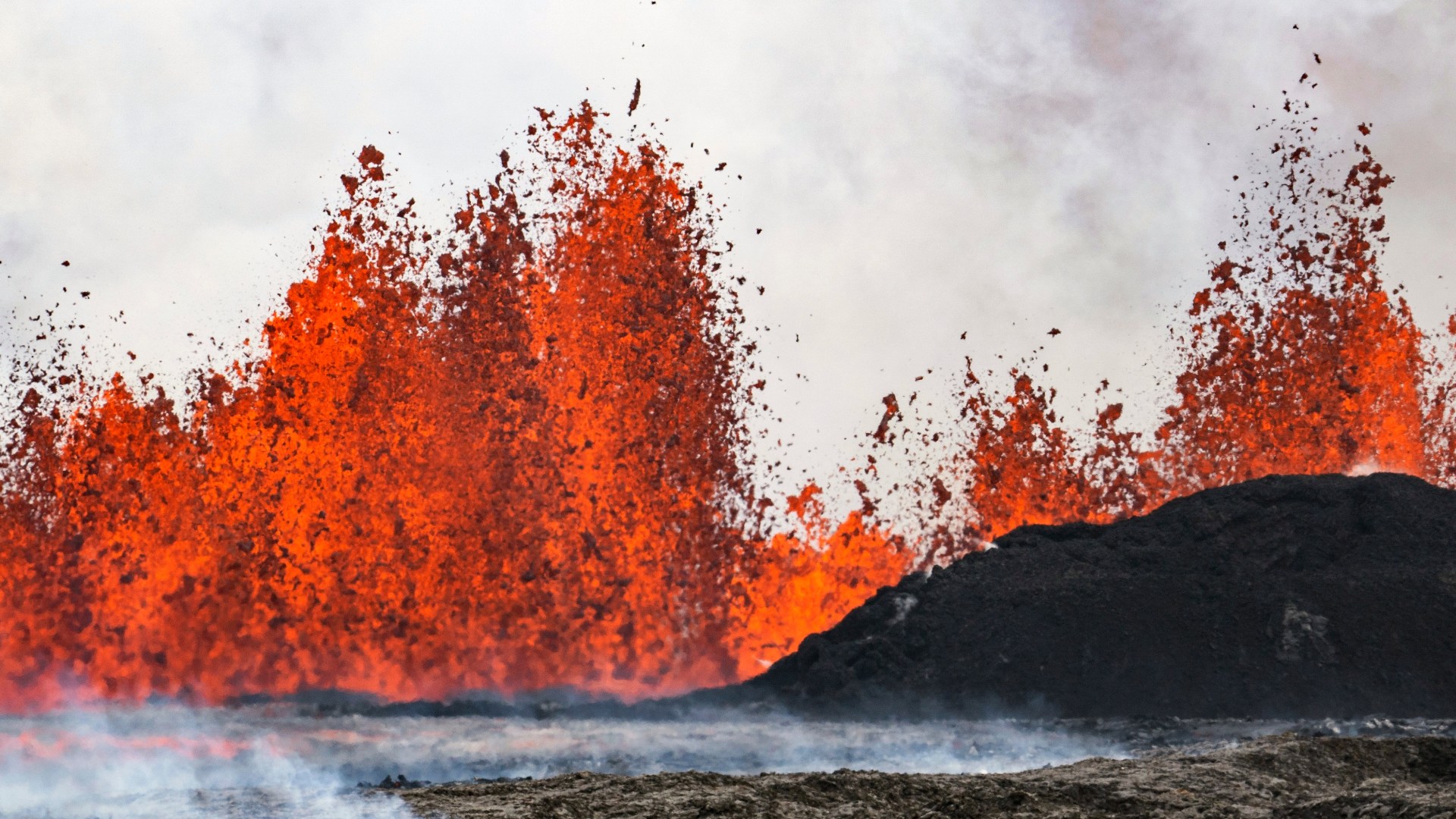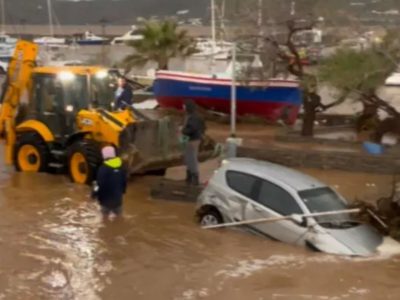NEWS of another volcanic eruption in Iceland have stoked fears about travelling to the popular tourist destination.
Seismic activity has already begun, prompting a red alert to be issued for some areas in the country.
Is it safe to travel to Iceland?
Molten magma started flowing beneath Sunddhnúksgígar on April 2, before news broke that some lava had broken through the surface.
Iceland is located on the fault line between the Eurasian and North American tectonic plates, which makes it a seismic hotspot.
The country carefully monitors seismic activity as a result, in order to protect tourists and residents.
Travel to Iceland has continued, tough, despite the eruption.
Red alerts for the affected areas have been issued, but the UK government has yet to comment on the news.
How likely is a volcanic eruption?
According to the Icelandic Meteorological Office, the eruption at Sunddhnúksgígar has already begun.
A statement from the office, released shortly after the likelihood of an eruption became clear, read: “Warning: A magma eruption has begun.
“No magma has reached the surface as of now, but an eruption is likely to occur.”
Predicting an eruption, the Icelandic Meteorlogical Office added: “The most likely scenario is that this period of magma buildup will end with a magma intrusion and/or an eruption, likely emerging first in the area between Sundhnúkur and Stóra-Skógfell.”
Will my flights be cancelled?
Flights to Reykjavik are not expected to be disrupted by the eruption.
Eruptions in 2023 and 2024 did not affect air travel to the country.
The country made headlines in 2010 when a huge eruption led to 20 countries closing their airspace to jet traffic.
However, this disruption was caused by particular traits exclusive to this volcano.
The volcano was directly under the jet stream, which was unstable at the time, launching ash directly into the stream.
Is Reykjavik safe from a volcanic eruption?
The volcano sits just 20 miles south-west of Reykjavik.
Although there is not an urgent threat to life in the Icelandic capital, the area surrounding the mountain is under a red alert.
It has not been confirmed how Reykjavik will be affected by the eruption but the Government of Iceland have previously warned that “not all events can be anticipated and can pose risk to your travel plans”.
For now, Reykjavik is unaffected by the eruption (as of April 1, 2025).
Is the Blue Lagoon open?
Residents have been evacuated from Grindavík, which is home to the Blue Lagoon.
The entire area is under red alert, as it is so close to the eruption site.
The Blue Lagoon has been closed in order to keep residents and tourists safe.
Grindavík had been a dormant site for over 800 years before experiencing seismic activity once again in 2020.
Why is the crime rate in Iceland so low?
Iceland’s strong social cohesion – supported by its high tax system, which funds public spending – is the key to its low crime rate.
The country has an inexpensive education system with shockingly low university fees.
There are also very few murders in the country — from 0 to 1.5 per year — alongside high employment rates and a robust social safety net.
These factors mean that there are fewer reasons to commit crimes such as burglary.
Iceland also has strong protections which allow citizens to identify how they choose and to practise their own religions.
Is it safe to walk around Iceland at night?
Iceland is one of the safest countries in the world and Reykjavik is one of the safest cities.
One TripAdvisor user wrote: “Never felt unsafe in Reykjavik, we have walked around at night, no problems. The city centre is compact. Iceland is on of the safest places I know.”
Walking around while it is dark is common as during the winter the country sometimes only has four to five hours of daylight.














